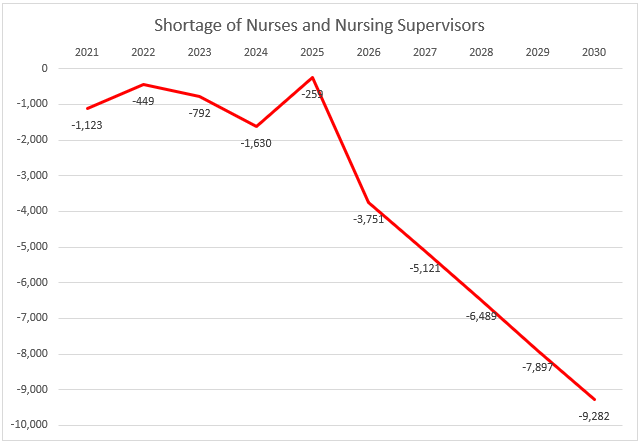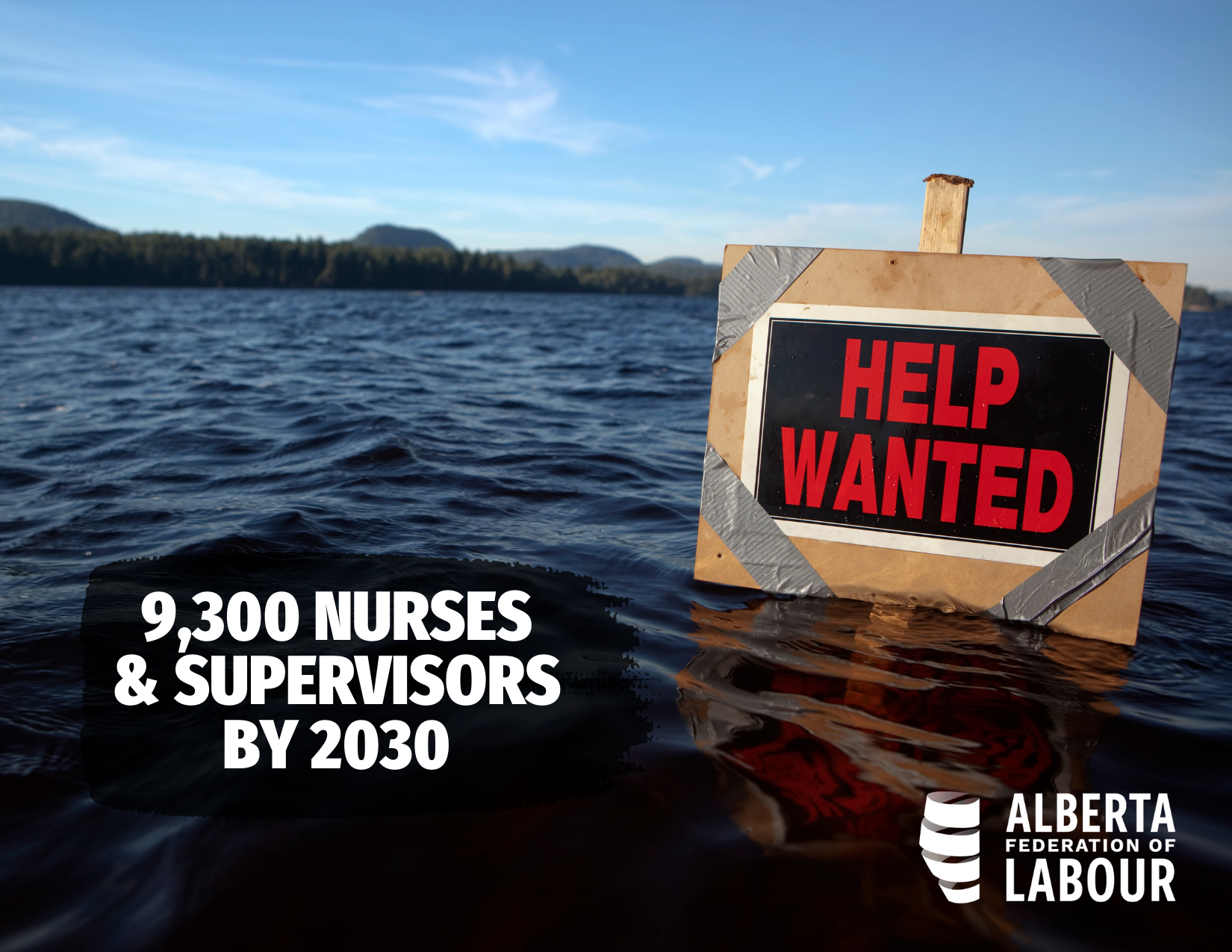The Alberta government forecasts that we’ll be short nearly 9,300 registered nurses, registered psychiatric nurses, nursing supervisors, and licensed practical nurses by the year 2030. That’s according to the government’s occupational outlook, which is published every 2 years.

(Source: Government of Alberta, Occupational Outlook Nurses include LPNs, NPs, RPNs, and RNs.)
It’s not news to Albertans than we’ll be short thousands of nurses in the next few years. The government knows this and there’s been a steady stream of stories about nurses feeling fatigued and struggling with burnout for the last 2 years.
Nurses are now being told to work mandatory overtime by Alberta Health Services (AHS) on one hand, and getting recruited by private firms on the other, which puts more strain on our public health care system.
And it’s not just nurses who are feeling the strain. Doctors, support staff, and other health care professionals are also feeling the strain of work from a surge in respiratory illnesses.
None of this is new, so where is the UCP government in all this?
Former Premier Jason Kenney threatened layoffs and wage cuts on nurses and other health care professionals and dared them to leave Alberta “to receive lower pay in other provinces and to pay higher taxes.” This kind of careless rhetoric doesn’t help with worker retention and recruitment.
Premier Danielle Smith recently said that AHS “manufactured” health care staffing shortages. She thinks that Alberta will gain workers who have been fired in other jurisdictions because they chose not to get vaccinated.
The lack of action on health care worker recruitment and retention clearly comes from the UCP leader. Premier Smith sets the direction and thinks the issue will solve itself. It will not.
Other provinces know this.
New Brunswick is recruiting nurses in Quebec.
Quebec launched a campaign to recruit retired nurses, those working in the private sector and nursing students to ease its shortage, as well as a $65 million campaign to recruit foreign-trained nurses.
Both Ontario and Newfoundland and Labrador launched strategies to lure health workers from other provinces.
British Columbia recently embarked on a huge operation to recruit and retain people for its health care system.
What’s Alberta done? Not much.
On Monday, February 13, the UCP government announced that it would spend $15 million on training and supporting more internationally educated workers.
This is a small step in the right direction, but other provinces have their recruitment and retention plans up and running years ago.
Alberta’s nurses’ union, the United Nurses of Alberta (UNA), pitched the government last December on a whole bunch of ways to attract and retain more nurses. UNA’s pitch included supports for internationally educated nurses, so the UCP’s announcement covered one of UNA’s 13 practical solutions, but left a whole bunch of other solutions untouched.
Health care staffing is crucial to a healthy society. When a government has options to increase recruitment and retention of health care workers, but chooses not to use them – or is too distracted to use them immediately – and instead lets the issue of understaffing fester, then we have a serious problem. Not just a health care problem, but a problem of accountability.
